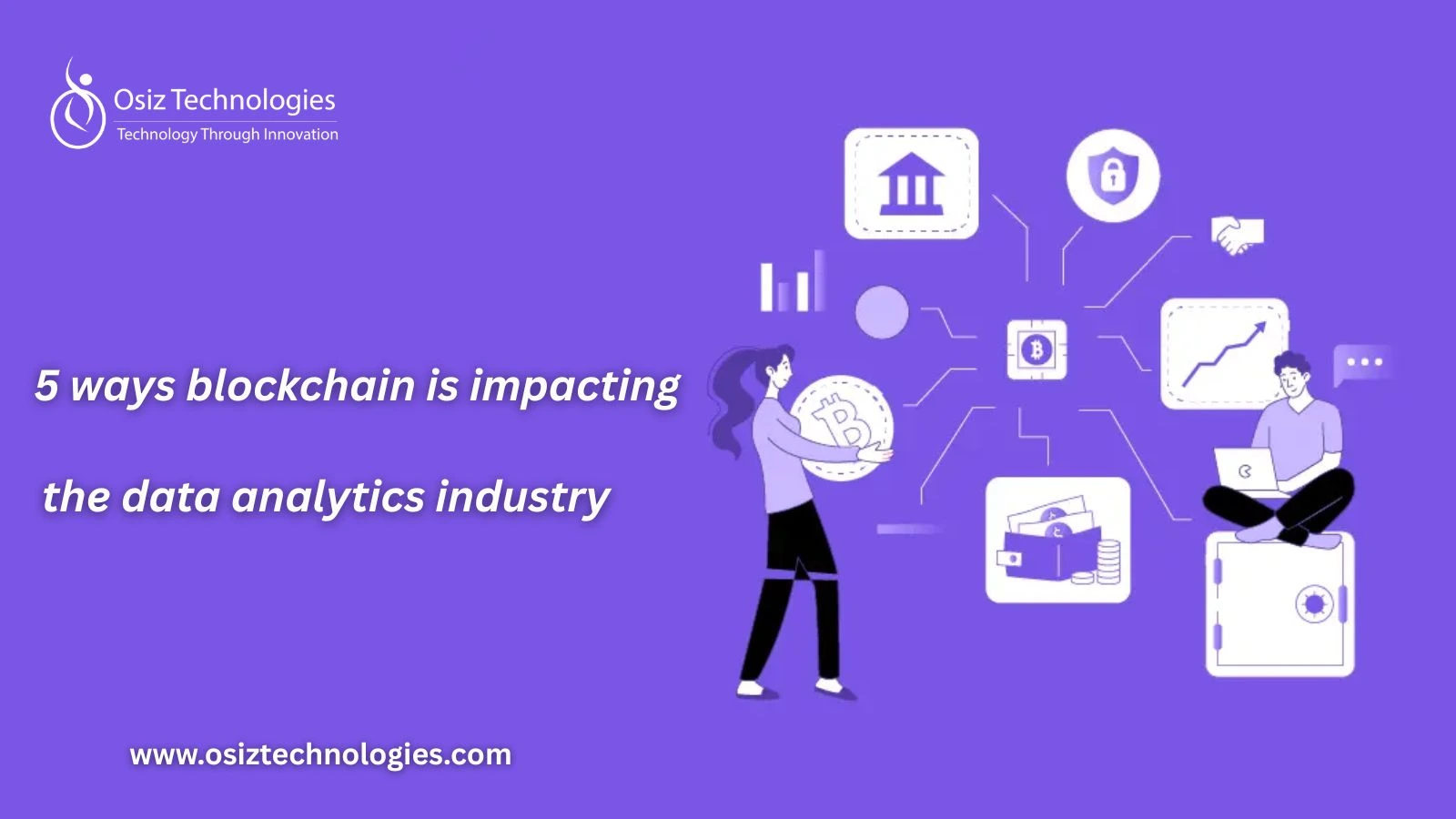In the tech world, advanced technologies are transforming the way businesses handle data. Among them, blockchain stands out for its ability to provide secure, transparent, and decentralized solutions, working alongside analytics, AI, and cloud computing to unlock smarter values. By infusing these technologies, organizations can make data-driven decisions more efficiently than ever before.
With blockchain, businesses can guarantee data integrity and traceability, reducing errors and building trust across departments. It also allows automated workflows through smart contracts, reducing manual actions and accelerating operations. As more organizations explore these innovations, blockchain is becoming a key driver for future-ready, intelligent analytics solutions.
Blockchain in Data Analytics: Why It Matters
In the modern, we make decisions based on data; confirming accuracy, security, and transparency is crucial. This is where blockchain data analytics comes into play, combining blockchain’s immutable records with analytics tools to deliver trustworthy data. By verifying and securing data at every stage, organizations can make more confident, informed decisions while reducing errors and fraud.
Moreover, it allows businesses to share data across departments and associates without compromising infusion and supports advanced analytics models that depend on verified, high-quality datasets.
5 Ways Blockchain is Transforming Data Analytics
Blockchain is rebuilding how organizations collect, process, and use data. Its decentralized, secure, and open nature is unlocking new possibilities in analytics, from improving data integrity to automating complex workflows. Here are five key ways blockchain is making an impact:
1. Enhanced Data Security and Integrity
Blockchain’s immutable records confirm that data cannot be secure with or altered, giving organizations confidence in their datasets. Analysts can depend on accurate information, reducing errors, and increasing the credibility of data.
It prevents unauthorized access by using cryptographic techniques, confirming that sensitive data remains protected from cyber threats.Blockchain also provides a transparent audit trail, allowing businesses to track every change and verify the authenticity of their data at any point in time.
2. Real-Time and Transparent Data Sharing
Decentralized networks allow multiple stakeholders to access verified data instantly. This transparency promotes collaboration, guarantees consistency across departments, and speeds up decision-making processes.
It reduces the risk of data differences, as every participant works with the same verified information, guaranteeing all decisions are based on accurate data. Real-time access also allows faster response to market changes, helping businesses adapt quickly and maintain a advantage over competitors.
3. Smarter Decision-Making with Verified Insights
By validating data at every stage, blockchain allows organizations to generate trustworthy and traceable findings. This reduces the risk of damaging conclusions and supports data-driven strategies across the business.
It allows predictive analytics by assuring that historical and real-time data are accurate, helping organizations predict trends and make in advance decisions.Blockchain also improves stakeholder confidence, as decision-makers can depend on verified and auditable data, strengthening trust across teams and partners.
4. Streamlining Workflows with Smart Contracts
Smart contracts automate data-related processes such as approvals, transfers, or notifications. This reduces human error, accelerates operations, and allows complex workflows to run efficiently without constant supervision.
By implementing smart contract services, organizations can regulate processes across departments, guaranteeing consistency and stability in operations. Automation also frees up resources, allowing teams to focus on strategic tasks rather than repetitive manual work, increasing overall productivity.
5. Unlocking New Opportunities with Decentralized Analytics
Blockchain opens doors for innovative analytics models, including secure data marketplaces where verified datasets can be shared. Organizations can explore new business opportunities and collaborative projects while maintaining data integrity.
Using a decentralized analytics platform allows multiple parties to access and analyze data without compromising security or ownership, predicting collaboration across companies.It also allows new revenue systems, such as monetizing verified datasets or offering analytics services, creating growth opportunities that were previously difficult to do.
Challenges and Limitations of Blockchain in Analytics
While blockchain offers more advantages for data analytics, it’s not without challenges. One major concern is scalability; processing record volumes of data on a blockchain can be slower and requiring a lot of resources than regular systems.
Infusion with existing analytics tools and company databases can also be complex, requiring technical expertise and additional infrastructure. Furthermore, regulatory compliance and data privacy laws may provide limitations when storing sensitive information on decentralized networks.
Finally, the initial setup and maintenance costs can be important for organizations, especially smaller enterprises, making careful planning essential before adopting blockchain solutions in analytics.
Future Trends: Where Blockchain and Analytics Are Headed
The future of data analytics is closely related to advancements in Future Blockchain Technology, which allows faster, more secure, and scalable solutions. Organizations are increasingly exploring blockchain analytics use cases to improve data-driven decision-making, from real-time reporting to predictive modeling.
Enterprises are also adopting data from the Top 7 Blockchain Development Use Cases for Enterprises, using decentralized platforms to improve collaboration, streamline operations, and unlock new business opportunities. As blockchain integrates with AI, IoT, and cloud computing, the analytics environment will continue to grow, offering smarter, more flexible, and innovative ways to harness data.
Conclusion
Blockchain is transforming the data analytics environment by guaranteeing security, transparency, and efficiency. Organizations that adopt these technologies can make smarter, faster, and more flexible decisions while unlocking innovative business opportunities.
Companies like Osiz, a leading blockchain development company, are helping companies to implement blockchain-powered analytics solutions, limitless workflows, and use verified data for growth. As blockchain continues to grow, integrating it with analytics will become essential for businesses aiming to stay competitive in a data-driven world.
Listen To The Article












